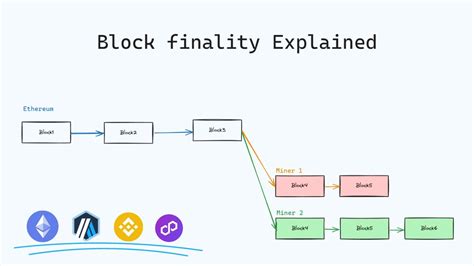- سبدخرید خالی است.
- ادامه خرید
Ethereum: zkSync Finality – what happens if I spend my funds before the finality
Ethereum’s Finality Unpredictability: Understanding the Risk of Spending Before Expiration
Ethereum’s finality guarantee is a crucial component of its decentralized and trustless blockchain architecture. However, this guarantee also raises important questions about the security and integrity of the network. In this article, we will explore what happens if Ethereum decides that a package is invalid, and whether spending before the expiration date poses any risk.
What is a finality guarantee?
A finality guarantee is a mechanism that ensures that all transactions on the Ethereum network are verified and confirmed in a deterministic manner, without any uncertainty or randomness. It guarantees that once a transaction is included in a block, it cannot be changed or deleted from the blockchain history. It ensures that the state of the blockchain remains consistent and predictable.
If Ethereum considers a batch invalid…
If Ethereum considers a batch of transactions invalid, it means that the block containing those transactions was rejected for some reason. In this scenario, the network will not attempt to re-produce or spend funds from the invalid block. Instead, the state of the blockchain prior to the invalid block is preserved.
However, there are cases where spending funds after a batch has been invalidated can still cause problems:
- Loss of reputation and reputation: If you spend funds on transactions that have been invalidated due to network errors or other unforeseen circumstances, it can damage your reputation on the Ethereum network. This can result in lower transaction fees, slower transaction times, or even temporary account suspensions.
What happens if you spend funds within 24 hours…
Spending funds within 24 hours of a batch being invalidated is generally considered acceptable. The blockchain’s finality guarantee ensures that if a block is rejected due to an error, the state remains consistent and predictable.
However, it is important to remember that issuing funds too close to a network restart or update can still cause problems. During this period, the Ethereum network may attempt to reissue funds from previous blocks before they have had time to be transmitted to all nodes across the network.
What happens if…
- Network restart

: If the Ethereum network is restarted or updated, it may attempt to reissue funds from previous blocks. In this case, issuing funds within 24 hours can cause problems because the blockchain’s finality guarantee may not be fully restored.
- Upgrade or Hard Fork: During a upgrade or hard fork, the Ethereum network may need to revalidate transactions and update the blockchains. Spending too close to network launch can cause issues that can delay transaction settlement.
Conclusion
Ethereum’s finality guarantee is a critical component of its decentralized and trustless architecture. While spending before finality poses some risk, the state remains consistent and predictable as long as a valid block is propagated throughout the network. To mitigate potential issues:
- Be cautious about spending within 24 hours of a batch being invalidated.
- Avoid sudden withdrawals or transactions on behalf of others.
- Monitor your transaction history and report any anomalies to the Ethereum team.
By understanding the risks associated with spending before finality, you can take steps to ensure the security and integrity of your Ethereum account.
